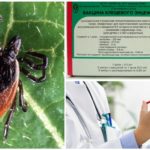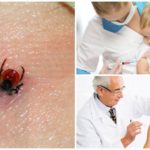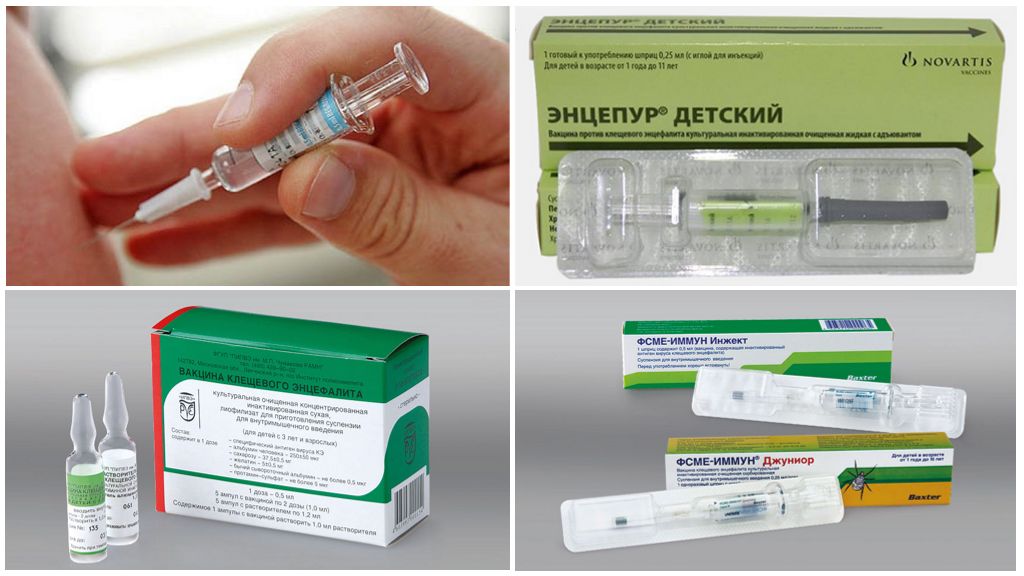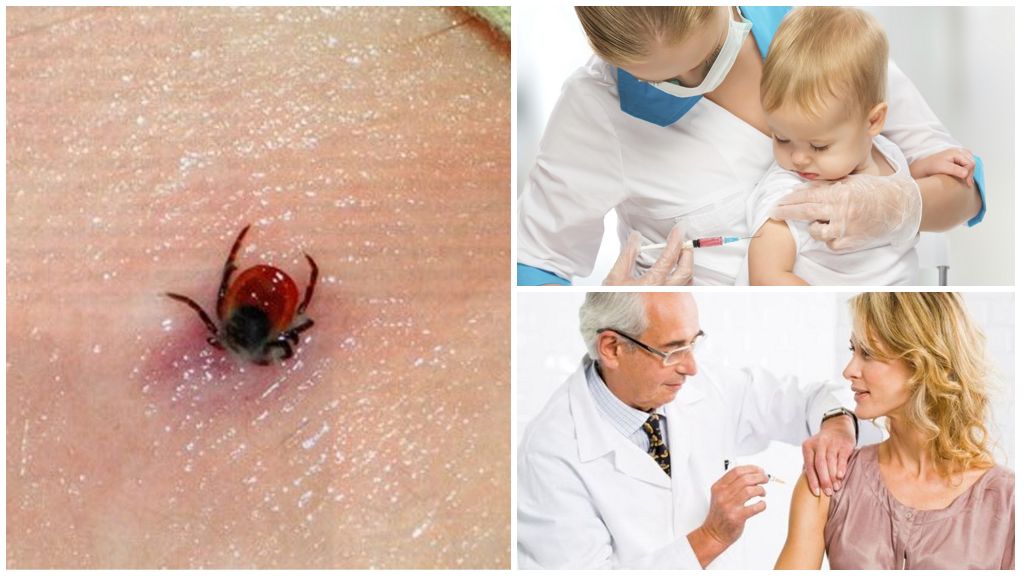Tick-borne encephalitis vaccine
Content
- 1 Encephalitis vaccine: who needs it
- 2 How does vaccination work
- 3 Does vaccination help?
- 4 Vaccine Varieties
- 5 Vaccination Schemes
- 6 Vaccinating children
- 7 Vaccination adults
- 8 Vaccination and alcohol
- 9 Side effects
- 10 Contraindications for tick-borne encephalitis vaccination
- 11 Where except clinics do vaccinations
- 12 If the tick did bite
- Vaccination against tick-borne encephalitis
- Vaccine Varieties
- Vaccination of children and adults
- Vaccination side effects
With the arrival of spring heat, many people tend to go on nature to set up a tent, enjoy the fresh air and take a break from everyday worries.However, one should not forget that the environment can be fraught with many serious dangers, one of which is ixodid mites. Often, a parasite bite contributes to the spread of a neurotropic virus, which, when it enters the bloodstream, causes tick-borne encephalitis (a disease that affects the vital systems of the body). Tick-borne encephalitis vaccination will help prevent negative consequences.
The condition of a person affected by a tick bite depends both on the stability of the nervous system and on the number of bacteria in the body. Symptoms of infection appear during the first week after the attack of the bloodsucker. The victim may experience:
- muscle and headache;
- leaking limbs and neck area;
- feeling of fever and lack of appetite;
- loss of consciousness and to whom.
Encephalitis vaccine: who needs it
Vaccination against tick-borne encephalitis prevents the development of a viral infection. Especially it is necessary:
- for people living in places where parasites are rampant;
- tourists and travelers;
- childrenliving in the private sector in the summer and eating fresh cow's milk (penetration of pests into the human body through the esophagus, together with milk, causes severe intoxication);
- foresters and logging workers;
- farm owners and agricultural workers;
- the serviceman.
How does vaccination work
After a virus enters the body, the immune system begins to search for an antigen of a pathogen that promotes the production of immunoglobulin. Formed in the human body antibodies are stored in it for a long time, with the penetration of a live pathogen have a neutralizing effect on it.
Does vaccination help?
The vaccine against tick-borne encephalitis is safe for the human body, therefore, infection with the virus during vaccination does not occur. This fact is explained by the content of the drug of the dead forms of the pathogen. The effectiveness of vaccination lies in the persistent immunity to the virus, which after administration of the drug is observed in the majority of patients (95%). Therefore, even with repeated attacks of the bloodsucker, a vaccinated person is unlikely to get sick.
On a note!
But considering that the risk of contracting encephalitis, although small, still exists (5%), even in this situation, the pathology proceeds in a mild form (without serious consequences and complications for the body).
Vaccine Varieties
Along with Russian-made drugs, there is an imported vaccine that can be vaccinated in both adults and children. In order to prevent to prevent infection with a dangerous infection are used:
- dry mite encephalitis vaccine (Russia);
- Encepur - there is an adult and children's vaccine (Germany);
- FSME Immun and FSME Immun Junior (Austria).
Another Russian vaccination against tick-borne encephalitis in children is called Encevir Neo, it is one of the most common. There is an EnceVire vaccine for people over 18 years old.
German and Austrian vaccines are also very popular in Russia. So, the children's Enceptur vaccine, intended for children of 1-12 years old, has a standard vaccination schedule: two injections are given with an interval of 1-3 months, after 9 months-1 year the third vaccination is given. In the same way, Enceptur is introduced to an adult.
On a note!
The serum of the Russian manufacturer contains antigens of the Siberian and Far Eastern viruses, in the European vaccine a strain of the western virus.But despite this, a tick vaccine of any composition is effective against various types of disease.
Vaccination Schemes
The vaccination scheme is of two variations:
- Classical (conventional) vaccination involves the introduction of three doses of doses (2 vaccinations and revaccination). Terms of vaccination vary depending on the recommendations of the manufacturer (vaccination calendar is indicated in the instructions). For the formation of immunity, two vaccinations are enough (the second vaccination is carried out with an interval from 1 to 7 months). Considering that parasites show activity in May and in June, vaccination against tick-borne encephalitis should be carried out in the autumn-winter period, the deadline is March, April. After completion of the course, revaccination is performed, its frequency is once every 3 years.
- Emergency vaccination allows you to create a "fast" immunity. Urgent vaccination is carried out in two stages, the interval between which is reduced to 14 days. It can strengthen the immune system for 3-4 weeks.
On a note!
Vaccination against ticks is permissible only for healthy people and only after being examined by a doctor. One injection is not able to form immunity, and therefore, it will be necessary to re-vaccinate a person.
The encephalitis tick vaccination is injected subcutaneously in the shoulder area.Injection of the inside of a blood vessel is unacceptable.
Vaccinating children
The question of how old a child is vaccinated against ticks is that many parents are puzzled. It depends on which particular drug is used. Usually, doctors recommend vaccinating a child by the year, and German or Austrian vaccines are usually in high demand.
Vaccination against tick-borne encephalitis in children is carried out only at high risk of contracting the virus. This method of protection has a number of undeniable advantages:
- Even if an encephalitic tick suddenly bites a vaccinated child, the baby may either not get infected at all, or even have a mild illness.
- Despite a number of side effects on encephalitis vaccination, they all appear rarely enough. Most children tolerate vaccination painlessly and easily.
- If you ask how much a vaccine works, then you can appreciate its advantage: the duration of the protective period from the moment of vaccination is at least 3 years, so you shouldn’t worry about the baby.
Vaccination adults
Tick bite vaccination is not mandatory for adults. However, one should not forget that it is possible to encounter a peddler of a dangerous infection not only in the forest, but also at the cottage or while relaxing in the park. The probability of becoming infected with encephalitis, while respecting the vaccination algorithm, is quite low.
Vaccination and alcohol
The question of whether to take alcohol after vaccination against tick-borne encephalitis is one of the frequently asked. Experts say that the combination of an alcoholic drink with an injection on each organism can act differently.
In most cases, alcohol is not compatible with drugs because it helps to enhance their reaction.
Important!
Vaccination is, though it is in a small dose, but a poison that allows the body to develop immunity due to the fact that it will recover from the disease in a mild form. Therefore, the intensification of such a reaction can lead to intoxication of the organism, which will be extremely negative for it. There are even cases of the fatal outcome of such a reaction. Therefore, it is better to avoid taking alcohol on the day of vaccination.
Side effects
Referring to reviews of vaccination, some people are very difficult to tolerate the introduction of such an injection into the body.Tick-borne vaccine can cause:
- swelling, compaction and redness at the site where the tick was injected;
- fever and fever;
- lethargy and apathy, or vice versa excessive excitability;
- severe headache;
- increased heart rate;
- lack of appetite;
- allergies;
- swollen lymph nodes;
- muscle aches and cramps;
- upset stomach, accompanied by vomiting.
In the event of these symptoms, you should immediately consult a doctor.
Contraindications for tick-borne encephalitis vaccination
There are a number of contraindications for which encephalitis vaccine cannot be used. Vaccination is not allowed if available:
- chronic diseases;
- bronchial asthma and diabetes;
- epilepsy and tuberculosis;
- rheumatism and blood diseases;
- endocrinological disorders;
- allergic reaction to chicken protein;
- heart disease and liver disease;
- during lactation, during pregnancy, as well as babies up to a year.
On a note!
In order to protect themselves from the tick bite, women during pregnancy are not recommended to go hiking in the woods or on camp sites during the period of activity of the parasites, you should also not drink unboiled fresh milk.
Where except clinics do vaccinations
The question of where to get an encephalitis vaccine is at least as often asked. Tick-borne encephalitis vaccination can be done in a specialized medical institution. In endemic areas, where the hospital receives a message from the epidemiological service about high pest activity, a free vaccine is being given.
On a note!
Vaccination is carried out not only in the district clinics, but also sanitary epidemiological stations or infectious diseases hospitals. The average cost of a domestic producer vaccine is about 500 rubles per 1 ampoule. The price of imported whey is 2-3 times higher.
If necessary, you should independently apply to paid vaccination rooms and find out how much tick-borne encephalitis vaccine costs. In the absence of a vaccine, you can drink for prophylactic purposes antiviral drugs that the doctor will recommend.
If the tick did bite
Emergency prophylaxis after a tick bite is necessary in the first three days (preferably on the first day) with an immunoglobulin. For the prevention of tick-borne encephalitis in children using immunoglobulin and Anaferon (for children).













